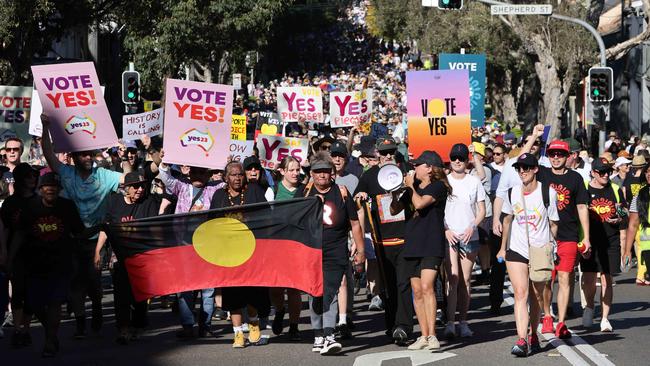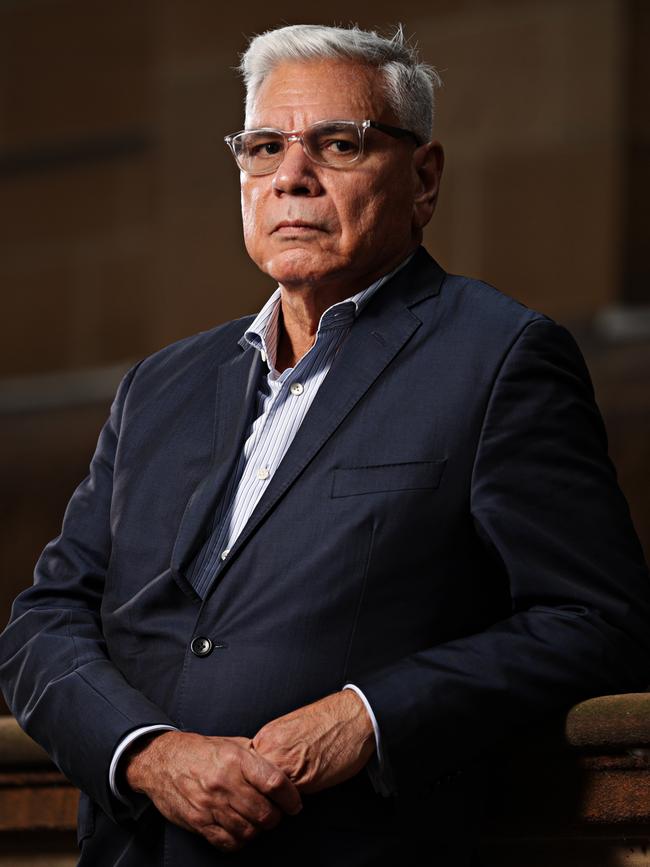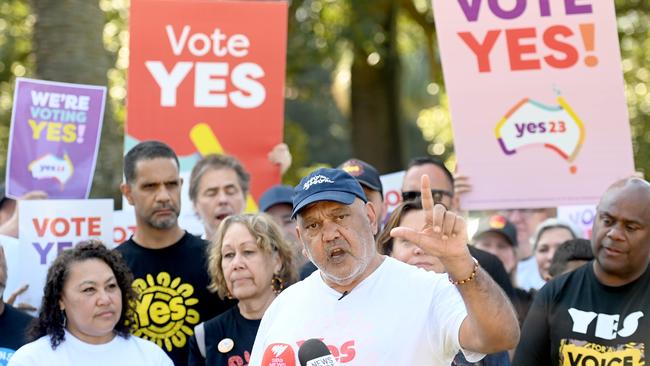Clare Armstrong: Treaties will progress regardless of Voice to Parliament referendum result
Whether the Yes or No case is successful on October 14, the process of treaty making between Australia’s First Nations people and its governments will march on, writes Clare Armstrong.

Opinion
Don't miss out on the headlines from Opinion. Followed categories will be added to My News.
The truth about treaties is out.
Whether the Yes or No case is successful on October 14, the process of treaty making between Australia’s First Nations people and its governments will march on.
A supposedly potent arrow in the No camp’s quiver was exposed for the farce it always had been in the comments made by prominent anti-Voice campaigner Warren Mundine over the weekend.
Mundine was adamant a successful No result would usher in a wave of momentum for making treaties.
Asked plainly if he believed treaties were “more likely” following a No result, Mundine replied: “yeah”.

These remarks surely horrified his fellow Voice opponents who have spent months warning the proposed advisory body was some Trojan horse for binding agreement making with Indigenous people that could even lead to compensation and handing over land.
But there’s no putting the genie back in the bottle now.
A core reason the No campaign has sought to highlight the so-called longer version of the Uluru Statement from the Heart, which includes explanatory documents and meeting minutes, was to link the Voice as closely to treaty as possible.
In treaty, No campaigners believe they have found a reason to fear and mistrust Australia’s Indigenous leaders and their intentions behind the Voice.
Yet here was arguably one of the two most important critics of the Voice stating very clearly that not only was he a long-time supporter of treaties, but that those very agreements his campaigning friends were fearful of would be accelerated by a No vote.
Mundine said treaties solved issues of “sovereignty,” gave “protection” to Aboriginal culture, heritage and lands, and would deal with the reality there are now “26 million other people in this country” who call Australia home, allowing the community to “move on”.
Australians will have to wait until October 15 to see if Mundine is right about a referendum loss turbocharging treaties, but either way his insistence they will forge ahead stands in stark contrast to all the No side has said on the issue to date.
Well not everyone is voting against the Voice.
Against all the odds – surely no one had this on their referendum bingo card – Mundine and Independent Victorian Senator Lidia Thorpe are on a unity ticket over this issue.
Thorpe has consistently argued the non-binding, no veto, advisory nature of the Voice will scupper efforts to negotiate treaties.

On Sunday Mundine made similar remarks, denigrating the Voice as an unnecessary layer of bureaucracy that would detract, not add, to the push for treaties.
Meanwhile Yes campaigners have consistently highlighted that far from obfuscating, the Uluru statement openly pushed voice, treaty and truth as the reconciliation pathway preferred by Indigenous Australians consulted during the dialogue process that led to the 2017 declaration.
An advisory body that can help to steer government policy was seen as the most likely component to achieve practical change and improved outcomes for Indigenous Australians, and thus Voice was decided upon as the first priority.
But it’s always been obvious the fate of the Voice was not inherently linked to treaty, because as years of federal political leaders dithered over what to do about the Uluru statement, states and territories were quietly getting on with their own treaty work.
Every single jurisdiction in Australia has made some effort toward progressing treaties, from the Treaty Negotiation Framework agreed to between the First People’s Assembly and state government in Victoria, to the recent appointment of a Minister for Aboriginal Affairs and Treaty in NSW.
Social media is awash with content – not all endorsed by the official No campaign - warning of the risk of treaties, but no amount of fearmongering TikTok videos could reverse the work already underway at a state and territory level.
Sure, No campaigners are right to highlight treaties may one day include financial compensation and return of land along with symbolic gestures of reconciliation, such as apologies.
But it is important to note that for a treaty to exist, both parties must actually agree.
That’s a pretty big incentive for everyone to come to some kind of consensus, particularly the governments at the table who presumably would want to be re-elected after whatever agreement comes into effect.
In many small ways, treaty is already happening.
Ever heard of a department delivering a service in “partnership” with an Indigenous community, or having “co-designed” the policy with relevant representatives?
They’re bureaucratic versions of treaties – or binding agreements - that happen all time.
New Zealand, Canada, Sweden, Finland, Japan, Greenland and the US have all negotiated treaties with Indigenous people, some have been upheld better than others.
Cancel the Voice referendum tomorrow, and treaties will still happen in Australia.
They may be decades in the making, but they are firmly on the political agenda.
It’s just not everyone in the No campaign has figured that out yet.
More Coverage
Read related topics:Voice To Parliament





